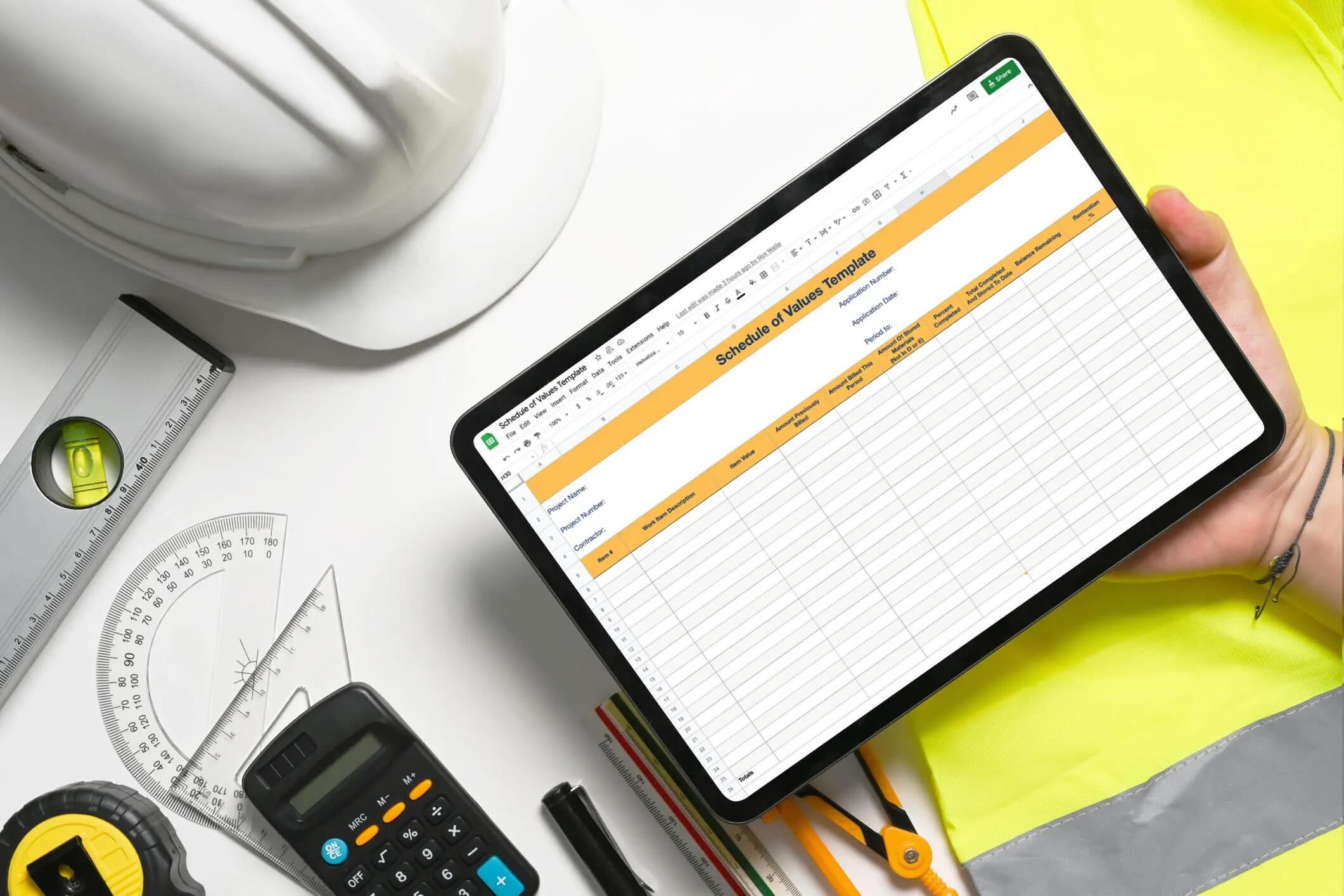Home>diy>Building & Construction>What Is A Contract Administrator In Construction


Building & Construction
What Is A Contract Administrator In Construction
Modified: January 4, 2024
Learn about the role of a contract administrator in building construction. Gain insights into their responsibilities and importance in ensuring project success.
(Many of the links in this article redirect to a specific reviewed product. Your purchase of these products through affiliate links helps to generate commission for Storables.com, at no extra cost. Learn more)
Introduction
Building construction is a complex process that requires careful planning, skilled labor, and efficient management. One crucial aspect of construction projects is the administration of contracts. In order to ensure that construction projects run smoothly and that all parties involved are protected, the role of a Contract Administrator is vital.
A Contract Administrator in the construction industry plays a crucial role in managing contractual agreements between clients, contractors, subcontractors, and other stakeholders. They are responsible for ensuring that all parties adhere to the terms and conditions outlined in the contracts, while also resolving any disputes that may arise during the construction process.
The role of a Contract Administrator in construction requires a deep understanding of the legal aspects of contracting, as well as strong organizational and communication skills. They act as a bridge between the different parties involved in a project, ensuring that everyone is on the same page and that the project progresses smoothly.
In this article, we will explore the responsibilities and duties of a Contract Administrator in construction, the skills and qualifications required for the role, and the importance of contract administration in ensuring the successful execution of construction projects.
Key Takeaways:
- Contract administrators in construction play a crucial role in managing contracts, ensuring compliance, resolving disputes, and fostering effective communication among project stakeholders. Their multifaceted expertise contributes to the successful execution of projects.
- The role of a contract administrator requires a unique skill set, including legal knowledge, construction industry expertise, strong communication and negotiation skills, and a commitment to continuous learning. These competencies enable contract administrators to navigate the complexities of construction contracts and protect the interests of all parties involved.
Role of a Contract Administrator in Construction
Contract administrators play a pivotal role in the construction industry by overseeing the implementation and management of contracts. Their primary responsibility is to ensure that all parties involved in a construction project fulfill their contractual obligations.
One of the main tasks of a contract administrator is to carefully review and analyze contracts before they are executed. They thoroughly examine the terms and conditions to ensure clarity and consistency, identify potential risks, and propose necessary modifications to protect the interests of all parties.
Contract administrators also play a crucial role in negotiating and finalizing contractual agreements. They work closely with project managers, contractors, subcontractors, and suppliers to establish fair and enforceable terms. This includes discussions on pricing, delivery schedules, quality standards, and any other specific requirements outlined in the contract.
During the construction phase, contract administrators closely monitor the progress of the project to ensure compliance with contractual obligations. They track milestones, review work progress reports, and verify that all work performed meets the agreed-upon standards. If any issues or disputes arise, contract administrators take appropriate actions to resolve them, such as facilitating discussions between the parties involved or initiating the claims process.
Additionally, contract administrators are responsible for maintaining accurate documentation and records related to the contracts. This includes archiving all correspondence, change orders, and other relevant documents, ensuring transparency and providing a historical record of the project.
Communication and collaboration are also key aspects of a contract administrator’s role. They act as a liaison between the different stakeholders in a construction project, facilitating effective communication and ensuring that everyone is informed about any changes or updates to the contracts. This helps to prevent misunderstandings and promotes a harmonious working relationship among all parties involved.
Overall, the role of a contract administrator in construction is critical to the success of a project. Their attention to detail, legal expertise, and ability to facilitate effective communication are essential in managing contracts and ensuring that all parties fulfill their obligations, ultimately leading to the successful completion of construction projects.
Responsibilities and Duties
A contract administrator in construction is responsible for a wide range of duties that revolve around contract management and ensuring adherence to contractual obligations. Let’s delve into some of the key responsibilities and duties of a contract administrator in the construction industry.
Contract Review and Analysis: The contract administrator thoroughly reviews and analyzes contracts to ensure clarity, consistency, and adherence to legal requirements. They identify any potential risks or ambiguities in the contract terms and propose necessary modifications to protect the interests of all parties involved.
Negotiation and Contract Finalization: Contract administrators work closely with project managers, contractors, subcontractors, and suppliers to negotiate and finalize contracts. They discuss pricing, terms, delivery schedules, quality standards, and any other specific requirements outlined in the contract.
Compliance Monitoring: During the construction phase, contract administrators closely monitor the progress of the project to ensure all parties meet their contractual obligations. They track milestones, review work progress reports, and ensure that the work performed aligns with the agreed-upon standards and specifications.
Dispute Resolution: In the event of disputes or issues arising during the construction process, contract administrators play a pivotal role in resolving conflicts. They facilitate discussions between parties, mediate negotiations, or initiate the claims process to find fair and effective solutions.
Documentation and Record Keeping: Effective contract administration requires meticulous documentation. Contract administrators are responsible for maintaining accurate records of contracts, change orders, correspondence, and other relevant documents. This ensures transparency, fosters accountability, and provides a historical record of the project.
Communication and Collaboration: Contract administrators serve as the primary point of contact between different stakeholders involved in the construction project. They facilitate effective communication, ensuring that all parties are informed about any changes or updates to the contract and fostering a collaborative working environment.
Risk Management: Contract administrators identify and assess potential risks associated with contractual agreements. They implement risk management strategies by incorporating appropriate clauses, insurance requirements, and dispute resolution mechanisms in the contracts.
Contract Performance Evaluation: Contract administrators evaluate the performance of contractors and subcontractors to assess their compliance with the terms and conditions of the contract. They track milestones, review deliverables, and address any performance issues that may arise.
Legal Compliance: Contract administrators ensure that all parties comply with legal and regulatory requirements throughout the contract duration. They stay up-to-date with industry regulations and legal standards and make sure that the contract terms align with applicable laws.
Continuous Improvement: Contract administrators continuously enhance their skills and knowledge of contract management practices to drive efficiency and effectiveness. They stay updated with industry trends, attend relevant training programs, and seek opportunities to improve contract administration processes.
By fulfilling these responsibilities and duties, contract administrators play a vital role in managing contracts and ensuring smooth construction project execution while minimizing disputes and maximizing project success.
Managing Contracts and Agreements
A significant aspect of a contract administrator’s role in construction is the management of contracts and agreements throughout the project lifecycle. Let’s explore how contract administrators handle the various stages of contract management.
Contract Creation: Contract administrators work closely with project managers, legal teams, and other stakeholders to draft comprehensive contracts that outline the terms, conditions, rights, and obligations of all parties involved. They ensure that the contracts are legally sound and align with the project requirements.
Contract Execution: Once the contract is finalized, the contract administrator ensures that all necessary parties sign the agreement. They verify that the execution process follows the contractual requirements and that all signatures are obtained in a timely manner.
Contract Amendments and Modifications: During the course of the project, changes or modifications to the contract may be necessary due to unforeseen circumstances or evolving project requirements. Contract administrators are responsible for managing these amendments and ensuring that they are properly documented and communicated to all relevant parties.
Change Orders: In construction projects, change orders are common to accommodate alterations in project scope, budget, or timeline. The contract administrator reviews and assesses change order requests, negotiates with the parties involved, evaluates their impact on the original contract, and ensures that they comply with the contract terms.
Contract Compliance: Contract administrators monitor and track the compliance of all parties with the contractual obligations. They review deliverables, milestones, and performance metrics outlined in the contract to ensure that the work performed aligns with the agreed-upon standards. They also ensure that all parties adhere to record-keeping and reporting requirements specified in the contract.
Vendor and Supplier Management: Contract administrators work closely with vendors and suppliers to manage their contracts and ensure that the goods and services provided are of high quality and delivered according to the agreed-upon terms. They may conduct supplier evaluations, negotiate pricing, and handle any disputes or performance issues that arise.
Risk Management: Contract administrators proactively identify and mitigate potential risks associated with the contracts. They assess risks such as non-compliance, delays, cost overruns, and dispute resolution. They implement risk management strategies by incorporating appropriate clauses, insurance requirements, and change management procedures into the contracts.
Contract Termination and Closeout: At the end of a project, contract administrators oversee the termination and closeout process. They ensure that all contractual obligations are fulfilled, final payments are made, and any necessary documentation or certifications are obtained. They also conduct a post-project evaluation to identify lessons learned and areas for improvement in future contracts.
By effectively managing contracts and agreements, contract administrators ensure that all parties involved in a construction project understand their obligations and responsibilities. They minimize disputes, control project costs, and establish a framework for successful project execution.
Reviewing and Analyzing Contracts
Reviewing and analyzing contracts is a critical task for contract administrators in the construction industry. It involves a thorough examination of the terms and conditions of the contracts to ensure clarity, consistency, legal compliance, and protection of the rights and interests of all parties involved. Let’s delve into the key aspects of reviewing and analyzing contracts.
Clarity and Consistency: Contract administrators carefully review contracts to ensure that the terms and conditions are clear, unambiguous, and easily understandable. They check for consistency in language, definitions, and obligations throughout the document, eliminating any potential areas for misinterpretation or confusion.
Legal Compliance: Contract administrators work closely with legal teams or legal advisors to ensure that the contracts comply with relevant laws, regulations, and industry standards. They verify that the contracts address all necessary legal elements and include any specific clauses required to protect the parties involved.
Risk Assessment: Contract administrators assess the risks associated with the contract terms and identify potential areas of concern. They evaluate the allocation of risk between the parties, consider potential liabilities, and propose modifications or additional clauses to mitigate any identified risks.
Scope and Deliverables: Contract administrators closely examine the contract to verify that the scope of work and deliverables are accurately defined and align with the project requirements. They ensure that all necessary details, specifications, and milestones are included in the contract to provide a clear understanding of project expectations.
Terms and Payment Conditions: Contract administrators thoroughly review the payment terms, including invoicing schedules, milestones, and payment conditions. They confirm that the payment terms are fair and reasonable, protecting the interests of both parties and ensuring timely and accurate compensation.
Change Control: Contract administrators analyze the change control procedures outlined in the contract to ensure that any modifications or variations to the original scope of work are properly documented and processed. They review the criteria for approving change orders, assessing their impact on costs, timelines, and project objectives.
Dispute Resolution: Contract administrators carefully consider the dispute resolution mechanisms specified in the contract. They ensure that the contract outlines clear steps and procedures for resolving disputes, such as mediation or arbitration, and that these methods are fair and impartial.
Third-Party Involvement: In some cases, contracts may involve third-party stakeholders, such as subcontractors or consultants. Contract administrators review the provisions related to third-party involvement, ensuring that appropriate clauses are included to protect the interests of all parties and promote effective collaboration.
Contract Accessibility and Communication: Contract administrators also assess how the contract will be accessed and communicated to relevant parties throughout the project. They consider how changes or updates to the contract will be communicated, ensuring that all parties have access to the most recent version of the contract and are aware of any modifications or amendments.
Documentation and Record Keeping: Finally, contract administrators ensure that all contractual documents, correspondence, and amendments are properly documented, organized, and maintained. They establish a robust record-keeping system to ensure transparency and provide a historical reference for the project.
By meticulously reviewing and analyzing contracts, contract administrators contribute to the integrity of the construction project, reduce the potential for misunderstandings, and ensure that all parties are aware of their contractual obligations and responsibilities.
Read more: What Is A Construction Administrator
Negotiating and Modifying Contracts
Negotiating and modifying contracts is a crucial responsibility of contract administrators in the construction industry. Their role involves working closely with project managers, contractors, subcontractors, and suppliers to establish fair and enforceable terms that meet the needs of all parties involved. Let’s explore the key aspects of negotiating and modifying contracts.
Understanding Project Requirements: Contract administrators begin the negotiation process by thoroughly understanding the project’s goals, requirements, and objectives. This allows them to identify the specific needs of the project and ensure that the contract aligns with these requirements.
Setting Clear Objectives: Before initiating negotiations, contract administrators establish clear objectives and goals that need to be achieved. These objectives are based on factors such as project scope, timeline, budget, and quality standards.
Identifying Negotiable Terms: Contract administrators identify the terms and conditions of the contract that are negotiable. They assess the potential areas where compromise can be made without compromising the project’s objectives or the interests of the parties involved.
Effective Communication: Negotiation requires effective communication skills. Contract administrators engage in open and transparent discussions with all parties involved, ensuring that everyone understands their respective needs and concerns.
Price and Payment Negotiation: Contract administrators negotiate the pricing structure and payment terms with contractors, ensuring that they are fair and reasonable for the work being provided. They consider factors such as project complexity, market rates, and payment milestones to establish a mutually beneficial arrangement.
Scope and Deliverables: Contract administrators work with project managers and contractors to define and negotiate the scope of work and deliverables outlined in the contract. They ensure that the scope of work is clearly defined and aligns with the project requirements.
Change Order Management: During the negotiation process, contract administrators may need to address change orders or modifications to the original contract scope. They work with all parties involved to assess the impact of the proposed changes and negotiate the terms and conditions to accommodate the revised scope.
Risk Allocation: Contract administrators assess the risk allocation in the contract and negotiate the distribution of risks between the parties involved. They strive to address potential risks, such as delays, unforeseen circumstances, or cost overruns, in a fair and balanced manner.
Ensuring Legal Compliance: Contract administrators ensure that all negotiated modifications and changes align with legal and regulatory requirements. They confirm that the revised contract terms are enforceable and protect the rights and interests of all parties involved.
Documenting Modifications: Once negotiations are complete, contract administrators document all modifications and changes agreed upon by the parties involved. They update the contract and ensure that all parties are aware of and have access to the revised terms.
By effectively negotiating and modifying contracts, contract administrators establish a strong foundation for successful project execution. Their ability to address the needs and concerns of all parties involved while maintaining legal compliance contributes to the overall success of the construction project.
A contract administrator in construction is responsible for managing and overseeing the contracts between the project owner, contractors, and suppliers. They ensure that all parties adhere to the terms and conditions of the contract, handle any disputes, and ensure that the project stays within budget and schedule.
Ensuring Compliance with Contractual Obligations
Ensuring compliance with contractual obligations is a vital responsibility of contract administrators in the construction industry. Their role involves monitoring the performance of all parties involved to guarantee adherence to the terms and conditions outlined in the contract. Let’s explore the key aspects of ensuring compliance with contractual obligations.
Monitoring Progress: Contract administrators closely monitor the progress of the project to ensure that all parties are fulfilling their contractual obligations. They track milestones, review work progress reports, and verify that the work performed aligns with the agreed-upon standards and specifications.
Quality Assurance: Contract administrators strive to ensure that all work performed meets the required quality standards. They conduct regular inspections, review test results, and ensure that the work is completed in accordance with industry best practices and regulatory requirements.
Timely Delivery: Contract administrators monitor the progress of the project to ensure that all deliverables are provided within the agreed-upon timelines. They track the completion of milestones and work closely with project managers and contractors to address any delays or potential issues that may impact project timelines.
Compliance with Specifications: Contract administrators verify that the work performed complies with the specifications outlined in the contract. They ensure that materials used meet the required standards and that any deviations are addressed appropriately, to avoid compromising the quality and integrity of the project.
Financial Compliance: Contract administrators monitor financial aspects, such as invoicing, payment terms, and budget allocations, to ensure compliance with the contractual obligations. They review invoices, monitor progress payments, and ensure that payments are made according to the agreed-upon schedule.
Record Keeping: Contract administrators maintain accurate documentation and records related to the contracts and project progress. They ensure that all correspondence, change orders, and other relevant documents are properly recorded and organized. This helps to provide a transparent and documented trail of the project’s compliance with contractual obligations.
Change Management: Contract administrators manage and document any changes or variations to the original contract. They ensure that proper change control procedures are followed, including obtaining necessary approvals and documenting the impact of changes on the scope, timeline, and budget of the project.
Contractual Notifications: Contract administrators facilitate effective communication by ensuring that all parties are notified of any changes or updates to the contract. They communicate contract amendments, change orders, and other relevant information to the appropriate stakeholders in a timely manner to ensure transparency and compliance.
Performance Evaluation: Contract administrators evaluate the performance of contractors and subcontractors to assess their compliance with the terms and conditions of the contract. They conduct regular performance reviews, assess deliverables, and address any performance issues that may arise.
Dispute Resolution: In case of disputes or issues, contract administrators play a crucial role in resolving conflicts. They work with all parties involved to find amicable solutions, either through negotiations, mediation, or by initiating the claims process outlined in the contract.
By ensuring compliance with contractual obligations, contract administrators contribute to the successful execution of construction projects. Their role in monitoring progress, maintaining quality standards, and addressing issues promptly helps to build trust, mitigate risks, and foster positive relationships among all stakeholders involved in the project.
Collaboration with Project Managers and Stakeholders
Collaboration with project managers and stakeholders is a vital aspect of a contract administrator’s role in the construction industry. Effective collaboration ensures that all parties are on the same page, working towards the successful execution of the project while adhering to the terms and conditions outlined in the contract. Let’s explore the key aspects of collaboration with project managers and stakeholders.
Establishing Open Communication: Contract administrators foster open and transparent communication channels with project managers and stakeholders. They ensure that all parties are aware of their roles, responsibilities, and obligations as outlined in the contract.
Pre-Contract Discussions: Contract administrators work closely with project managers in the pre-contract phase to gather insights and requirements for the project. They participate in discussions to understand the project’s goals, objectives, and constraints, which helps in creating comprehensive and effective contracts.
Contract Development and Review: Contract administrators collaborate with project managers during the contract development process. They seek input from project managers to ensure that the contract reflects the specific needs of the project, including scope, timeline, budget, and quality requirements.
Contractual Modifications: When modifications or changes to the contract are necessary, contract administrators collaborate with project managers to assess the impact of these changes. They work together to negotiate and determine the appropriate adjustments to the contract terms.
Monitoring Project Progress: Contract administrators collaborate with project managers to monitor the progress of the project, ensuring that it aligns with the contractual obligations. They regularly communicate with project managers to obtain updates on milestones, deliverables, and potential issues that may impact project execution.
Addressing Issues and Disputes: In the event of issues or disputes, contract administrators collaborate with project managers and stakeholders to find resolutions. They participate in discussions, mediate negotiations, and facilitate the resolution process, ensuring that all parties are heard and considered.
Change Management: Contract administrators work closely with project managers in managing changes or variations to the scope, timeline, and budget of the project. They collaborate to assess the impact of changes, obtain necessary approvals, and communicate the revised requirements to all stakeholders involved.
Risk Mitigation: Contract administrators collaborate with project managers and stakeholders to identify and mitigate risks associated with the project. They actively participate in risk assessment discussions, suggest risk mitigation strategies, and incorporate appropriate clauses in the contract to address identified risks.
Performance Evaluation: Contract administrators collaborate with project managers to evaluate the performance of contractors and subcontractors. They align with project managers to assess the quality of deliverables, adherence to timelines, and compliance with the terms and conditions of the contract.
Lessons Learned: Contract administrators collaborate with project managers and stakeholders to capture lessons learned throughout the project. They participate in post-project evaluations and discussions to identify areas for improvement in future contracts and project execution.
By fostering collaboration with project managers and stakeholders, contract administrators create a cohesive and efficient project environment. Their collaboration ensures that all parties work towards a common goal and that the project is executed successfully while meeting contractual obligations and aligning with the interests of all involved.
Resolving Disputes and Claims
Resolving disputes and claims is a crucial responsibility of contract administrators in the construction industry. Despite careful planning and execution, conflicts may arise during the course of a construction project. Contract administrators play a pivotal role in facilitating discussions and finding amicable solutions to address these disputes. Let’s explore the key aspects of resolving disputes and claims.
Understanding the Dispute: Contract administrators thoroughly analyze the nature and root causes of the dispute or claim. They study the contract terms, review relevant documents, and engage in discussions with all parties involved to gain a comprehensive understanding of the issues at hand.
Mediation and Negotiation: Contract administrators act as mediators, facilitating discussions and negotiations between the parties involved in the dispute. They encourage open communication and work towards finding mutually beneficial solutions that satisfy the interests of all parties.
Claims Management: Contract administrators are responsible for managing claims throughout the project. They collect and document all relevant information related to the claim, including supporting documentation, correspondence, and any additional evidence. They also assess the legitimacy and validity of the claim in accordance with the contract terms.
Assessment of Damages: Contract administrators assess the potential damages or losses incurred by the parties involved in the dispute. They analyze the impact of the alleged breach of contract on the project and consider factors such as financial, time, and reputational implications.
Dispute Resolution Mechanisms: Contract administrators evaluate the dispute resolution mechanisms specified in the contract, such as mediation, arbitration, or litigation. They ensure that the chosen mechanism is appropriate and guide the parties through the process, ensuring fair and impartial resolution.
Legal Considerations: Contract administrators consult with legal advisors to ensure that the resolution process is in compliance with relevant laws and regulations. They assess the legal implications and risks associated with different resolution strategies and ensure that the resolution is within the bounds of the contract terms.
Documentation and Record Keeping: Contract administrators meticulously document all discussions, negotiations, and resolutions related to the dispute. They maintain a comprehensive record of the process, including any agreements or settlements reached, to ensure transparency and provide a historical reference if needed in the future.
Cost and Time Implications: Contract administrators assess the potential cost and time implications of the dispute resolution process. They work towards timely resolutions to minimize project delays and additional expenses while balancing the need for a fair and thorough examination of the issues at hand.
Enforcing Resolutions: Contract administrators ensure that resolutions reached during the dispute resolution process are enforced and implemented by all parties. They track the execution of agreed-upon actions, monitor compliance, and provide guidance to ensure that the resolution is effectively implemented.
Post-Resolution Evaluation: After a resolution has been reached, contract administrators conduct post-resolution evaluations to identify lessons learned. They analyze the root causes of the dispute and implement preventive measures to mitigate the risk of similar issues arising in future projects.
By effectively resolving disputes and claims, contract administrators mitigate project disruptions, maintain positive relationships among stakeholders, and ensure the successful completion of construction projects while upholding the contractual obligations and protecting the interests of all parties involved.
Read more: What Is A Construction Contract
Documentation and Record Keeping
Documentation and record keeping are essential aspects of a contract administrator’s role in the construction industry. Effective documentation ensures that all relevant information is properly recorded, organized, and accessible, providing a transparent and reliable record of the project and contract-related activities. Let’s explore the key aspects of documentation and record keeping in contract administration.
Contractual Documents: Contract administrators are responsible for maintaining accurate and up-to-date contractual documents. This includes contracts, agreements, addenda, change orders, and any other contract-related documentation. They ensure that these documents are properly stored, organized, and easily accessible for reference throughout the project duration.
Correspondence: Contract administrators maintain a record of all correspondence related to the contract. This includes emails, letters, meeting minutes, and any other written communications exchanged between the parties involved. They organize and maintain these correspondences to capture important discussions, decisions, and agreements made during the project.
Change Orders and Amendments: Contract administrators properly document all change orders and amendments to the contract. They ensure that these changes are recorded, communicated to relevant parties, and incorporated into the contract. This ensures transparency, eliminates confusion, and helps minimize disputes related to changes in project scope, timeline, or budget.
Meeting Records: Contract administrators keep records of all project meetings, including minutes and action items. By accurately documenting meeting discussions, decisions, and assigned responsibilities, they ensure that all parties have a clear understanding of the project progress and any agreed-upon actions to be taken.
Financial Records: Contract administrators maintain financial records related to the contract, including invoices, payment receipts, and financial reports. They ensure that these records are organized and accessible, providing a clear picture of the financial transactions and status of the project.
Project Documentation: Contract administrators collaborate with other project team members to gather and maintain project-related documents such as design drawings, specifications, permits, and certificates. They ensure that these documents are properly inserted into the contract documentation system for easy retrieval and reference.
Record Retention: Contract administrators establish record retention policies and guidelines to ensure compliance with legal and regulatory requirements. They maintain records for the required period and are responsible for the secure storage and disposal of sensitive information in accordance with data protection laws.
Effective Organization: Contract administrators develop efficient systems and methods for organizing and categorizing contract and project-related documents. They use appropriate naming conventions, file structures, and digital or physical repositories to facilitate quick and easy access to the information when needed.
Transparency and Accountability: Documentation and record keeping promote transparency and accountability in contract administration. By maintaining accurate and complete records, contract administrators can provide evidence of contractual obligations, project progress, and any disputes or claims that may arise throughout the project.
Legal and Regulatory Compliance: Contract administrators ensure that all documentation and record keeping practices align with legal and regulatory requirements. They stay up-to-date with industry standards, data protection laws, and document retention guidelines to ensure compliance and mitigate any potential legal risks.
By effectively managing documentation and record keeping practices, contract administrators ensure that all contractual activities and project-related information are properly recorded, organized, and accessible. This fosters transparency, facilitates effective communication, and provides a reliable historical record of the project’s progress and contractual obligations.
Required Skills and Qualifications
Being a contract administrator in the construction industry requires a combination of specific skills and qualifications. A contract administrator must possess a strong understanding of construction contracts, legal principles, and project management concepts. Let’s explore the key skills and qualifications necessary for a contract administrator in construction.
Legal Knowledge: A contract administrator must have a solid understanding of contract law, relevant regulations, and industry standards. They should be familiar with construction-specific legal concepts such as lien laws, indemnification, and insurance requirements. This knowledge helps them interpret and ensure compliance with contractual terms while protecting the rights and interests of all parties involved.
Construction Industry Expertise: Contract administrators should have a comprehensive understanding of the construction industry, including the various types of contracts commonly used, project delivery methods, and construction processes. Familiarity with construction terminology, materials, and techniques enables them to effectively manage contracts and anticipate potential issues.
Contract Management: Strong contract management skills are vital for a contract administrator. They should be proficient in drafting, reviewing, and negotiating contracts. They should possess the ability to identify risks, propose modifications, and ensure that contracts are properly executed and adhered to throughout the project duration. Attention to detail, organization, and the ability to manage multiple contracts simultaneously are key attributes.
Communication Skills: Excellent communication skills, both written and verbal, are essential for a contract administrator. They are required to effectively communicate contract terms, changes, and updates to project managers, stakeholders, and other parties involved. They must also possess strong interpersonal skills to facilitate discussions, resolve conflicts, and build positive working relationships.
Negotiation Skills: Contract administrators must be skilled negotiators. They negotiate pricing, terms, and conditions with contractors, subcontractors, and suppliers. Effective negotiation skills enable them to reach fair agreements while ensuring that the project’s objectives and contractual obligations are met.
Analytical and Problem-Solving Abilities: Contract administrators need strong analytical and problem-solving skills to assess contract terms, identify potential risks, and propose appropriate resolutions. They must be able to analyze complex contractual issues, evaluate alternatives, and make sound decisions that protect the project’s interests while fostering positive relationships.
Time Management: In a fast-paced construction environment, contract administrators must effectively manage their time and prioritize tasks. They should be capable of handling multiple deadlines and maintaining project timelines. Strong organizational skills are crucial to meet contractual obligations and ensure project progress.
Attention to Detail: Contract administrators must possess a keen attention to detail to thoroughly review and analyze contracts, identify potential issues, and propose necessary modifications. Precision and accuracy in contract documentation, record keeping, and adherence to contractual requirements are essential.
Collaboration and Teamwork: Successful contract administrators work collaboratively with project managers, stakeholders, and other members of the project team. They foster a teamwork mentality, effectively communicate, and build strong relationships to ensure the smooth execution of contracts and project success.
Continuous Learning: Contract administrators should have a commitment to lifelong learning and staying updated with industry trends, changes in regulations, and evolving contract management practices. This helps them adapt to new challenges, explore innovative solutions, and enhance their expertise in contract administration.
These skills and qualifications are essential for a contract administrator in the construction industry. By possessing a solid foundation in legal principles, construction knowledge, and effective contract management skills, contract administrators play a key role in ensuring the successful execution of construction projects while protecting the interests of all parties involved.
Conclusion
The role of a contract administrator in the construction industry is vital to ensuring the smooth and successful execution of projects. Contract administrators are responsible for managing contracts, overseeing compliance with contractual obligations, resolving disputes, and maintaining effective communication among project stakeholders. They possess a unique skill set, combining legal knowledge, construction industry expertise, and strong contract management abilities.
Throughout the project lifecycle, contract administrators play a pivotal role in reviewing and analyzing contracts, negotiating and modifying terms, and ensuring compliance with contractual obligations. They collaborate closely with project managers and stakeholders, fostering open communication and facilitating effective teamwork. Additionally, contract administrators are skilled in resolving disputes and claims, mitigating risks, and documenting all contractual activities and project-related information.
Required skills and qualifications for contract administrators include legal knowledge, construction industry expertise, contract management abilities, excellent communication and negotiation skills, analytical problem-solving abilities, attention to detail, and a commitment to continuous learning. These competencies enable contract administrators to navigate the complexities of construction contracts, protect the interests of all parties involved, and contribute to the successful execution of projects.
In conclusion, the role of a contract administrator in construction is multifaceted and critical to the success of projects. Their expertise in contract management, legal compliance, and effective communication helps to mitigate risks, resolve conflicts, and ensure that all parties fulfill their contractual obligations. By embodying the required skills and qualifications, contract administrators serve as facilitators, problem solvers, and guardians of the contractual integrity of construction projects.
Frequently Asked Questions about What Is A Contract Administrator In Construction
Was this page helpful?
At Storables.com, we guarantee accurate and reliable information. Our content, validated by Expert Board Contributors, is crafted following stringent Editorial Policies. We're committed to providing you with well-researched, expert-backed insights for all your informational needs.














0 thoughts on “What Is A Contract Administrator In Construction”